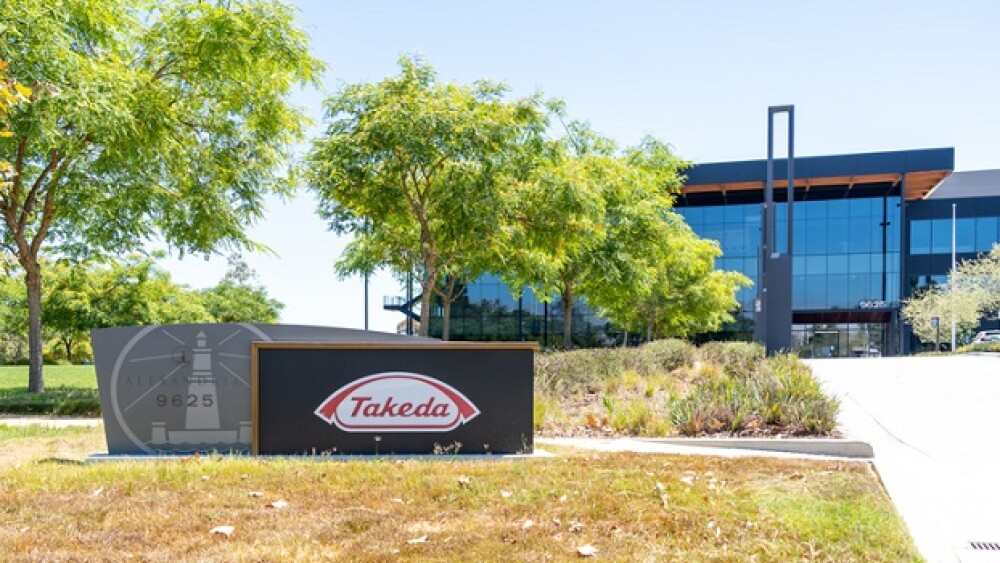Amid a supply shortage of the attention-deficit/hyperactivity disorder and binge-eating disorder medication, the regulator has cleared a slew of generic drugs of Takeda’s Vyvanse pill.
Pictured: Takeda signage at its office in California/iStock, JHVEPhoto
The FDA has approved many different generic versions of Takeda’s blockbuster Vyvanse (lisdexamfetamine dimesylate), used for the treatment of attention-deficit/hyperactivity disorder and binge-eating disorder in adults.
The approvals come as the U.S. is suffering from a shortage of the drug. In June 2023, the Japanese multinational posted an advisory on Vyvanse’s website, warning that it was “currently experiencing low inventory of Vyvanse capsules due to a manufacturing delay compounded by increasing demand.”
The shortage mostly affected Vyvanse’s 40-mg, 60-mg and 70-mg doses. Supply constraints for the two latter strengths are expected to persist into September. The advisory remains active on the Vyvanse site.
The newly cleared generics might be able to help address this shortage, with authorized dosage levels ranging from 10 mg to 70 mg. All these now-approved generics, which come from several different manufacturers such as Teva and Mylan, have been demonstrated to be therapeutically equivalent to Vyvanse.
An oral amphetamine, Vyvanse was first approved in 2007 and was originally developed by New River Pharmaceuticals, which was bought by British drugmaker Shire in the same year. Takeda won ownership of the drug in 2019, when it acquired Shire.
Since then, Vyvanse has consistently been a top-selling drug for Takeda. During the fiscal year of 2023, ended March 31, Vyvanse made more than $3 billion in revenue, up by more than 40% from the previous fiscal year.
In its most recent quarterly earnings report, right as Vyvanse was about to lose its market exclusivity, the drug still made the Japanese pharma more than $800 million in earnings, representing an increase of over 23%.
Still, despite strong sales numbers and signs of continued growth, Takeda anticipates that losing its patent protections “will lead to declines in sales,” the company wrote in its 2022 annual financial report. Vyvanse lost these protections on Aug. 24, though it remains unclear when the newly approved generics will launch in the U.S. or if they already have.
The generics “work in the same way and provide the same clinical benefit and risks as their brand-name counterparts,” the FDA wrote in its news release announcing the approval of Vyvanse generics. Like their branded reference, these generics will also carry a boxed warning for the risk of drug abuse and dependence.
Tristan Manalac is an independent science writer based in Metro Manila, Philippines. He can be reached at tristan@tristanmanalac.com or tristan.manalac@biospace.com.






